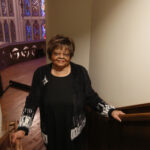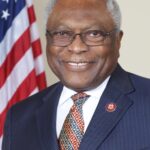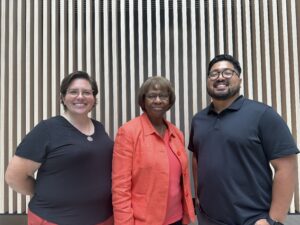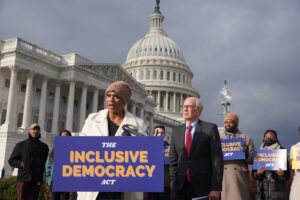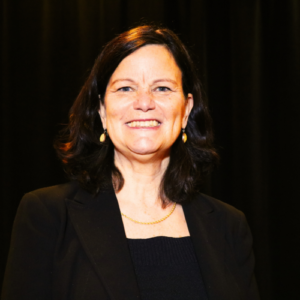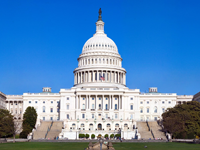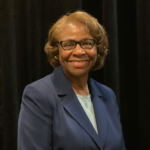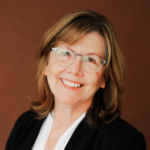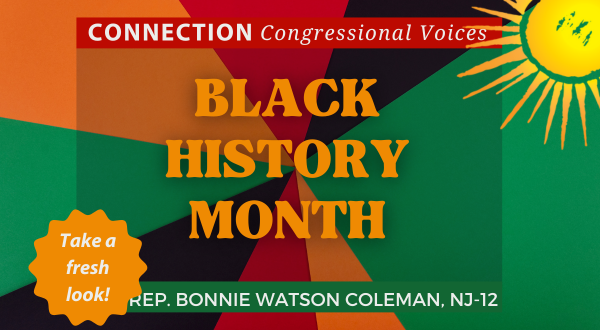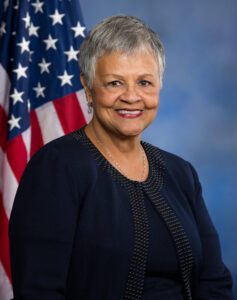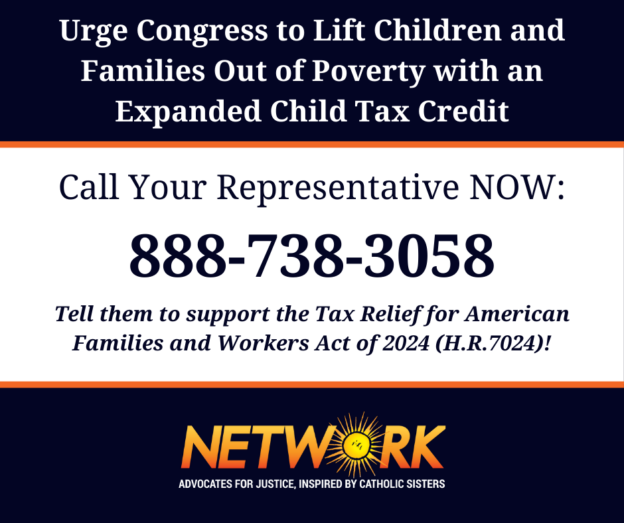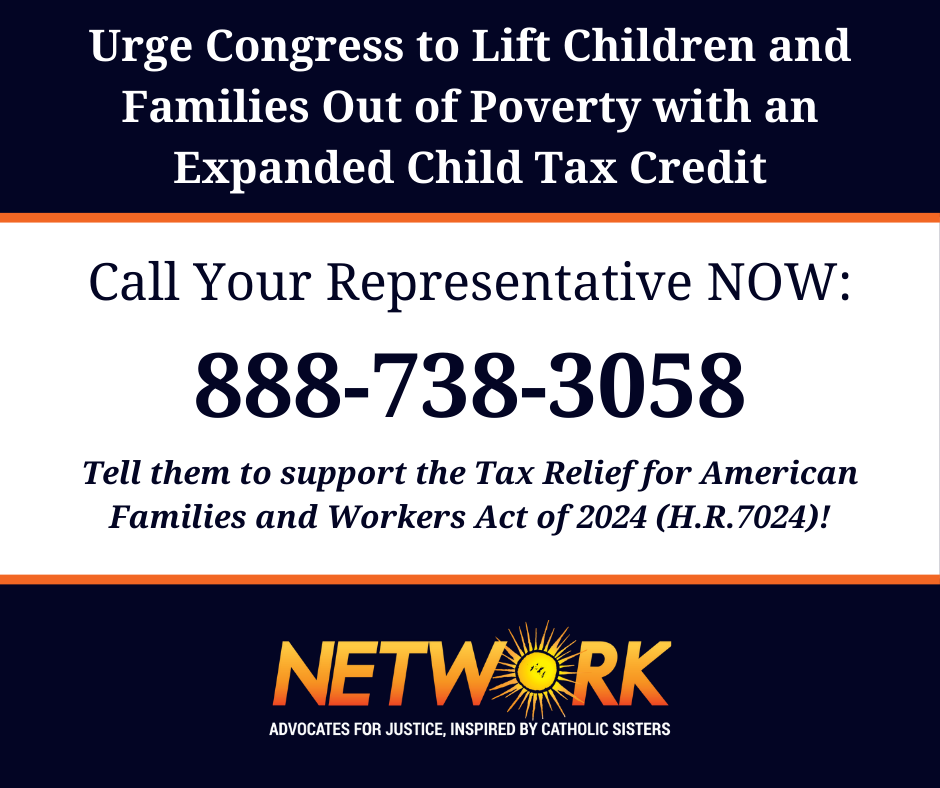
Living Out of Our Shared Humanity
We Lose Ourselves When We Disown Our Neighbor
Sr. Eilis McCulloh, HM
June 26, 2024
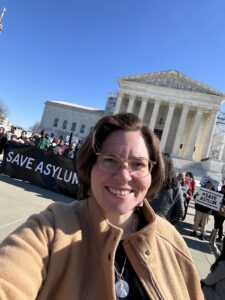
Sr. Eilis McCulloh, HM, pictured here at a Jan. 9 rally to save asylum, is NETWORK’s Grassroots Education and Organizing Specialist.
It should be simple. Our faith propels us towards caring for one another. Scripture commands us to love our neighbor as ourselves. More specifically, Exodus instructs us: “You shall not oppress or afflict a resident alien, for you were once aliens residing in the land of Egypt. You shall not wrong any widow or orphan. If you ever wrong them and they cry out to me, I will surely listen to them.”
These passages read as if they could guide our country. However, somewhere along the way, our politics took a turn. Instead of centering our commitment to welcome the stranger or care for our neighbors, we began pitting ourselves against one another. Instead of striving for unity and the common good, we began using one another as step stools to reach the next highest rung of the ladder.
As certain groups tried to attain a higher status, the divide in our country grew. How did this happen? Perhaps, it was when the notion of the achieving “American dream” took us out of living in community and into a large house with a white picket fence that divided us from our neighbors. As we move into our own insulated neighborhoods, we risk losing the recognition that we depend on one another. When we allow borders and fences, ZIP codes, and railroad tracks to physically, socially, and spiritually divide us, it becomes easy to pit one person against another.
And yet, we know that this is not how democracy or the common good flourishes. We know that division only serves as a kindling for hatred and fear of “the other.” When we lose sight of the people around us, it becomes far too easy to categorize the “other’s” struggles as a problem not worth fixing. We forget that what affects one of us, affects all of us.
Last year, in NETWORK’s Thriving Communities campaign, we named this. A thriving community is not possible unless every person has what they need to thrive. Every person is integral to our community. When one of us—or a group of us—falters, we all falter. Like the often-repeated phrase during COVID, “We are stronger together.”
At NETWORK, we also talk about building an inclusive world where we all work together to transform our politics and structures of racial, economic, and social injustice. We must recognize the dignity in every person, no matter their political party, religious tradition, nationality, race, gender, etc. As a Sister, I know that it is easy to claim that I work to ensure that we all have the opportunity to live abundant lives, but in practice this is more difficult. We run the risk disowning or dehumanizing our neighbor or, worse yet, picking and choosing who we want to identify as neighbor.
In his message to the World Meetings of Popular Movements in 2017, Pope Francis said,
“The grave danger is to disown our neighbors. When we do so, we deny their humanity and our own humanity without realizing it; we deny ourselves, and we deny the most important Commandments of Jesus. […] But here we also find an opportunity: that the light of the love of neighbor may illuminate the Earth with its stunning brightness like a lightning bolt in the dark; that it may wake us up and let true humanity burst through with authentic resistance, resilience, and persistence.”
What does this mean for us? In both big and small ways, we might be called move outside of our routines and comforts to begin to build authentic relationships with one another. If we do not build these authentic relationships, we will not see ourselves as members of one community. This is not a ”one and done” performance, but a lifelong commitment to being neighbor to one another. It is a commitment to border and boundary crossing so that we can begin to understand someone else’s self-interest, to understand worlds and viewpoints different than our own, and to witness to a future full of hope.







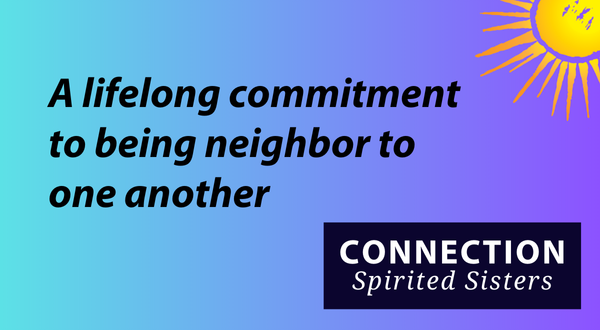
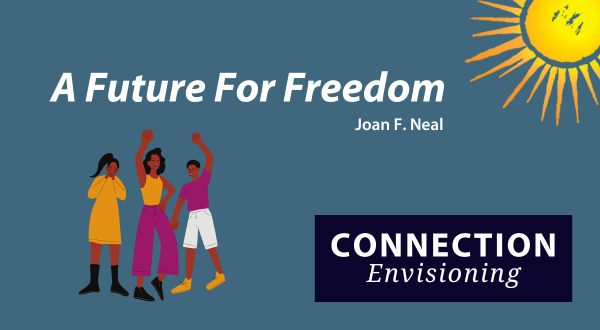
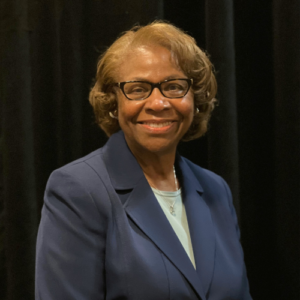
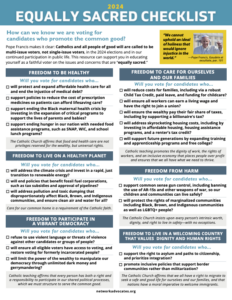
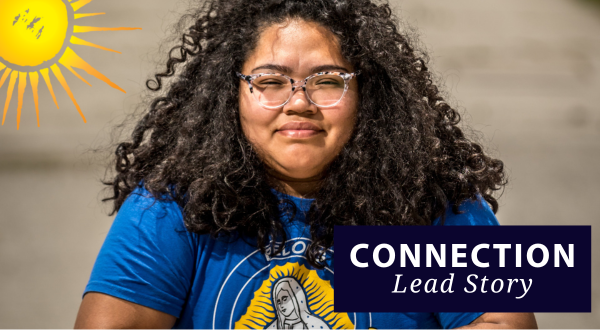
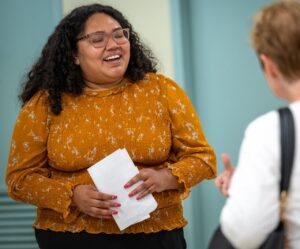
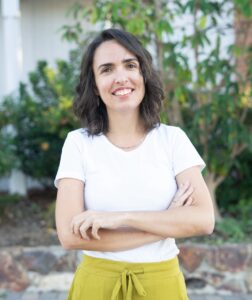
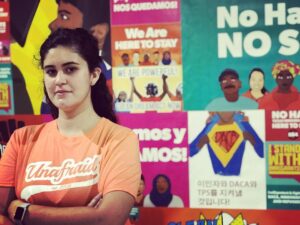
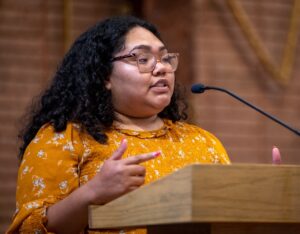

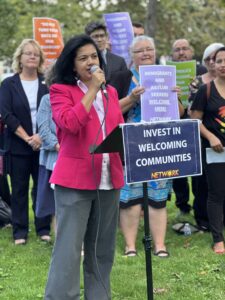
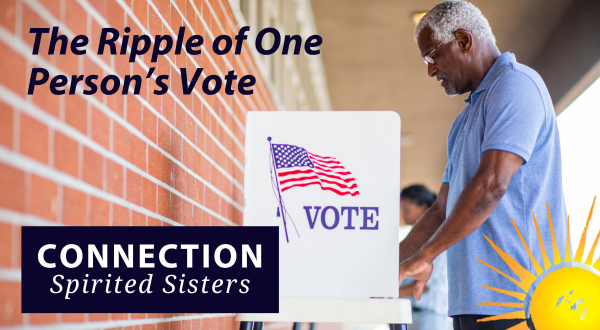
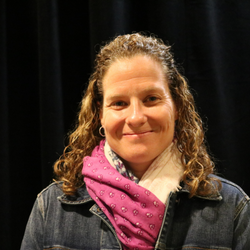

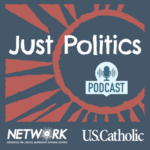 It all raises the question of the overall health of democracy in the U.S. and its prospects for weathering the 2024 elections — in the presidential race, Senate, House, and state-level contests. Advocates, academics, and leaders in the areas of faith and politics agree — and shared with
It all raises the question of the overall health of democracy in the U.S. and its prospects for weathering the 2024 elections — in the presidential race, Senate, House, and state-level contests. Advocates, academics, and leaders in the areas of faith and politics agree — and shared with 

